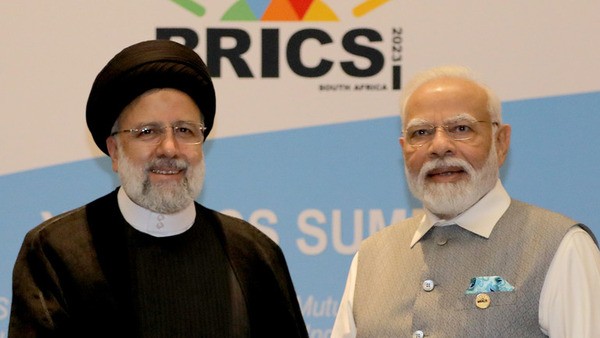Iran’s Plan to Strike Back Against the U.S.
Iran’s Military Preparations Following U.S. Attacks
Loading...

Indian PM offered condolences and highlighted Raisi's role in improving bilateral ties between New Delhi and Tehran.
Following President Ebrahim Raisi's death in a helicopter crash near the border with Azerbaijan, Prime Minister Narendra Modi said on Monday that India stands with Iran in this hour of grief.
Raisi, 63, and his entire entourage, including Foreign Minister Hossein Amir Abdollahian and Iranian Governor Malek Rahmati of East Azerbaijan province, died in the accident. The Iranian leader was on the visit after joining Azerbaijan President Ilham Aliyev on Saturday for the inauguration of a dam.
PM Modi wrote in a post that he recalled.
When the first reports of Raisi's helicopter crash emerged on Saturday, the Indian PM said he was "deeply concerned." "We stand in solidarity with the Iranian people in this difficult hour," he wrote.
Last November, PM Modi spoke about the turmoil in the Middle East and the conflict between Israel and Hamas. Prime Minister Modi reiterated India's "longstanding and consistent stand" on the Israeli-Palestinian issue while expressing "deep concern over terrorist incidents, violence and loss of civilian life." The two leaders also emphasized the need to prevent escalation, continue humanitarian assistance, and work towards restoring peace and stability.
Indian Foreign Minister Subrahmanyam Jaishankar also expressed his condolences on Monday, recalling his "multiple meetings" with Raisi and Iran's foreign minister, the last of which took place in January this year.
Jaishankar visited Iran to discuss the precarious situation in the Red Sea and Gulf of Aden shipping lanes, which are under attack by Houthi rebels said to be backed by Tehran. They also held talks regarding Chabahar Port, as both countries have been working on strategic logistics and infrastructure projects since 2018. Last week, New Delhi and Tehran announced a 10-year agreement to allow India to operate the port, which is considered a gateway to unlock trade potential with Iran, Afghanistan, Central Asian countries, Russia, and Europe. signed the agreement. The development of Chabahar is also important for the North-South Transport Corridor (INSTC), an alternative transport route envisioned by New Delhi, Tehran, and Moscow.
This long-term agreement, which New Delhi believes will benefit the entire region, has not gone unnoticed by India's Western partners. Hours after the signing, the US State Department warned that those collaborating with Iran "must be aware of the potential risks to which they are exposed."
Reacting to the statement, Jaishankar suggested that Washington should not take a "parochial" view of the project. The diplomat said the US had long "recognized" that Chabahar port was of "greater importance".
Editor
Iran’s Military Preparations Following U.S. Attacks
Troops remain in five strategic locations, raising fears of renewed tensions and long-term occupation.
Opposition forces have taken control of the capital after a significant offensive. Here is how it unravelled.
